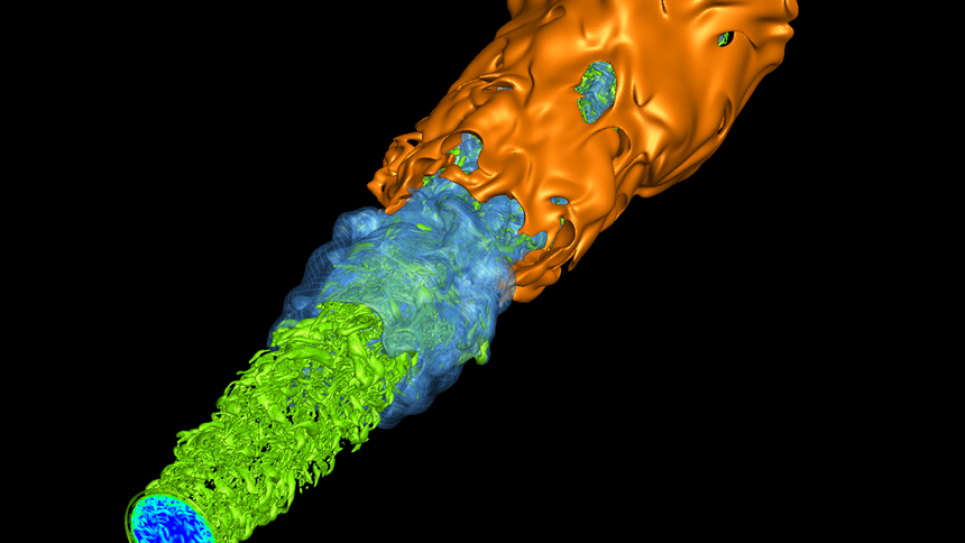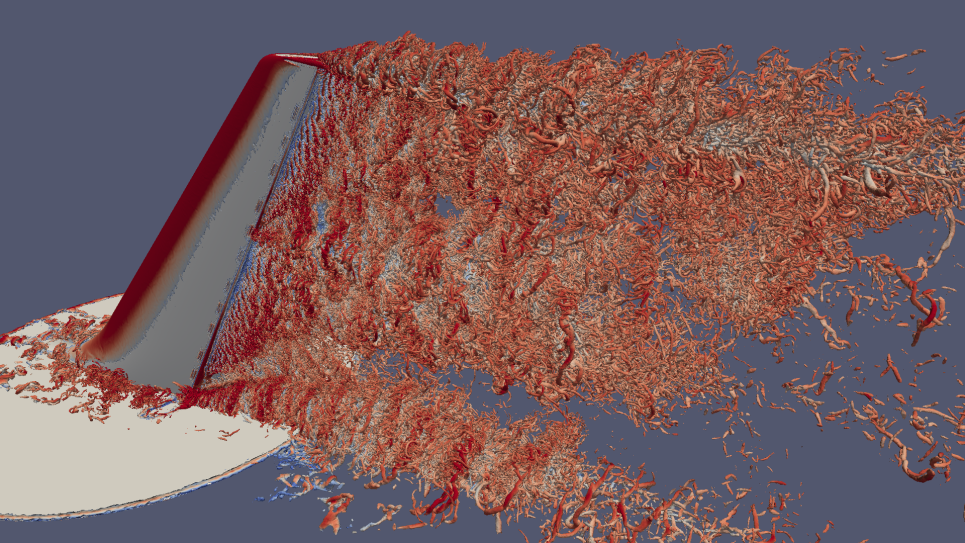
DNS/LES of Complex Turbulent Flows
This project will study two fluid dynamical problems with high-fidelity, finite volume flow simulations using petascale resources: (1) direct numerical simulation (DNS) of autoignition in a vitiated coflow burner and (2) large eddy simulation (LES) of propeller crashback. Its three broad aims include developing numerical algorithms for turbulence simulation, performing high–fidelity simulations of important flows, and using the simulation results to develop simpler scaling laws and engineering models.
Regarding the first fluid dynamics problem, the autoignition of fuels is crucial to the design and understanding of the next generation of internal combustion engines using homogeneous charge compression ignition, as these engines can achieve higher thermal efficiencies with lower nitrogen oxide emissions. The DNS will provide data that will assist in understanding the influence of turbulent mixing on ignition-delay times and flame stability, as well as in analyzing existing combustion models and developing novel models.
Crashback occurs when a forward-moving marine vessel is decelerated by rotating the propeller in the reverse direction, thereby yielding negative thrust. The reverse flow interacts with the incoming freestream, generating unsteady forces that are transmitted to the vessel body, adversely affecting its maneuverability and potentially causing damage to and reducing performance of the propeller blades. Understanding crashback will enable better designs of marine propellers and the determination of safe operating envelopes. The researchers will focus on developing and demonstrating the capability of using LES to simulate highly turbulent flows on propelled bodies in crashback; to their knowledge, this is the first time detailed simulations will be performed of such complicated flow.

